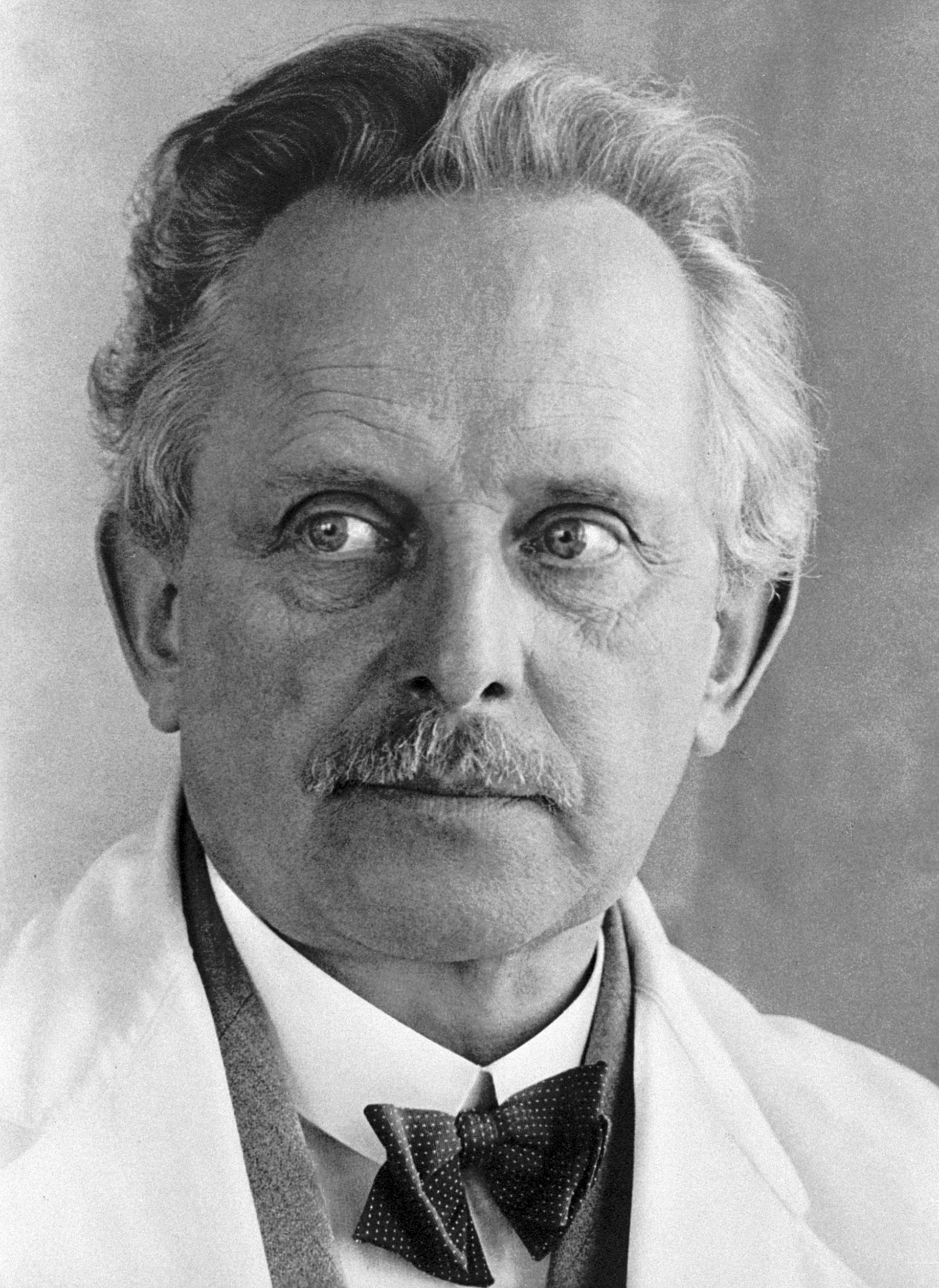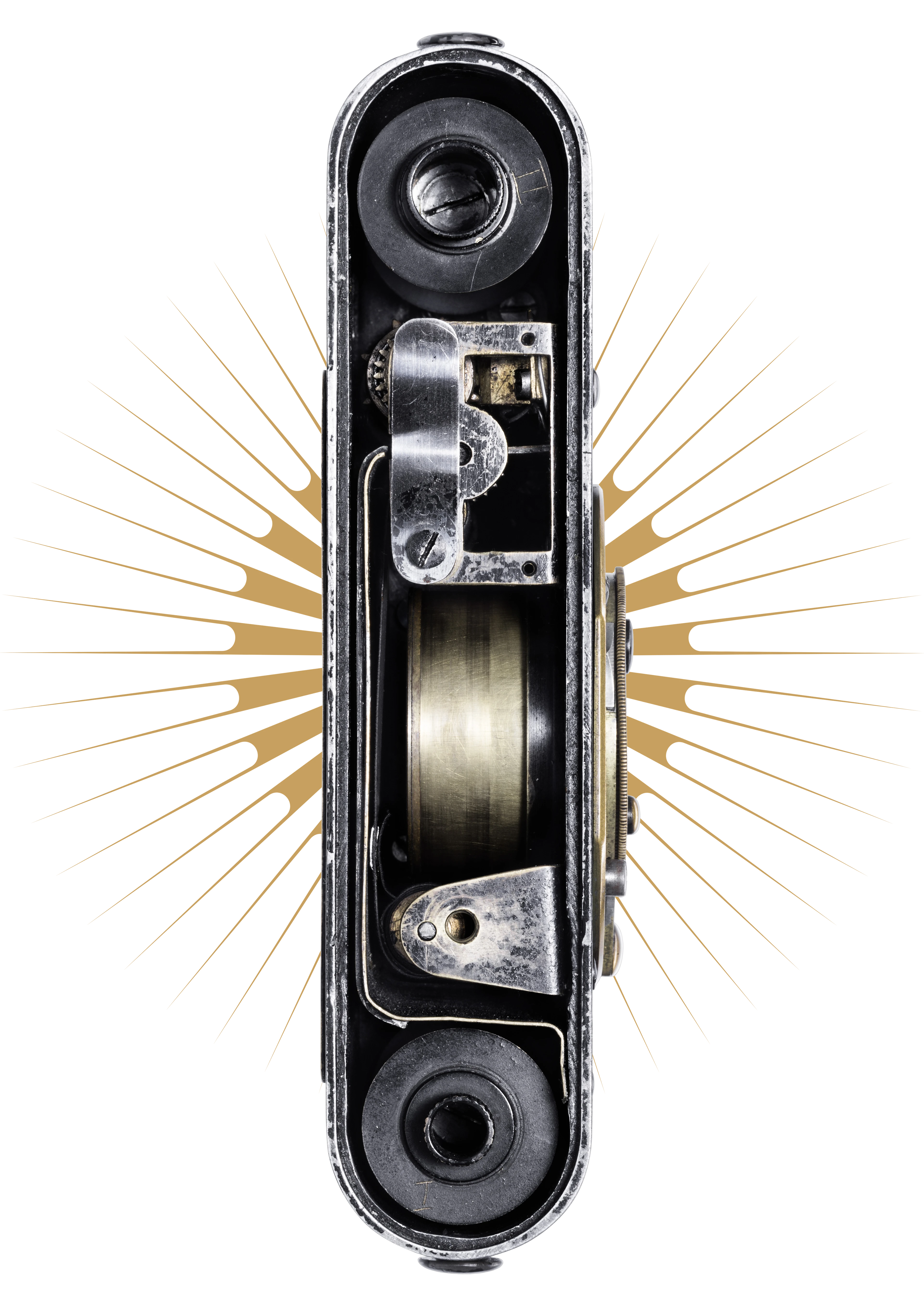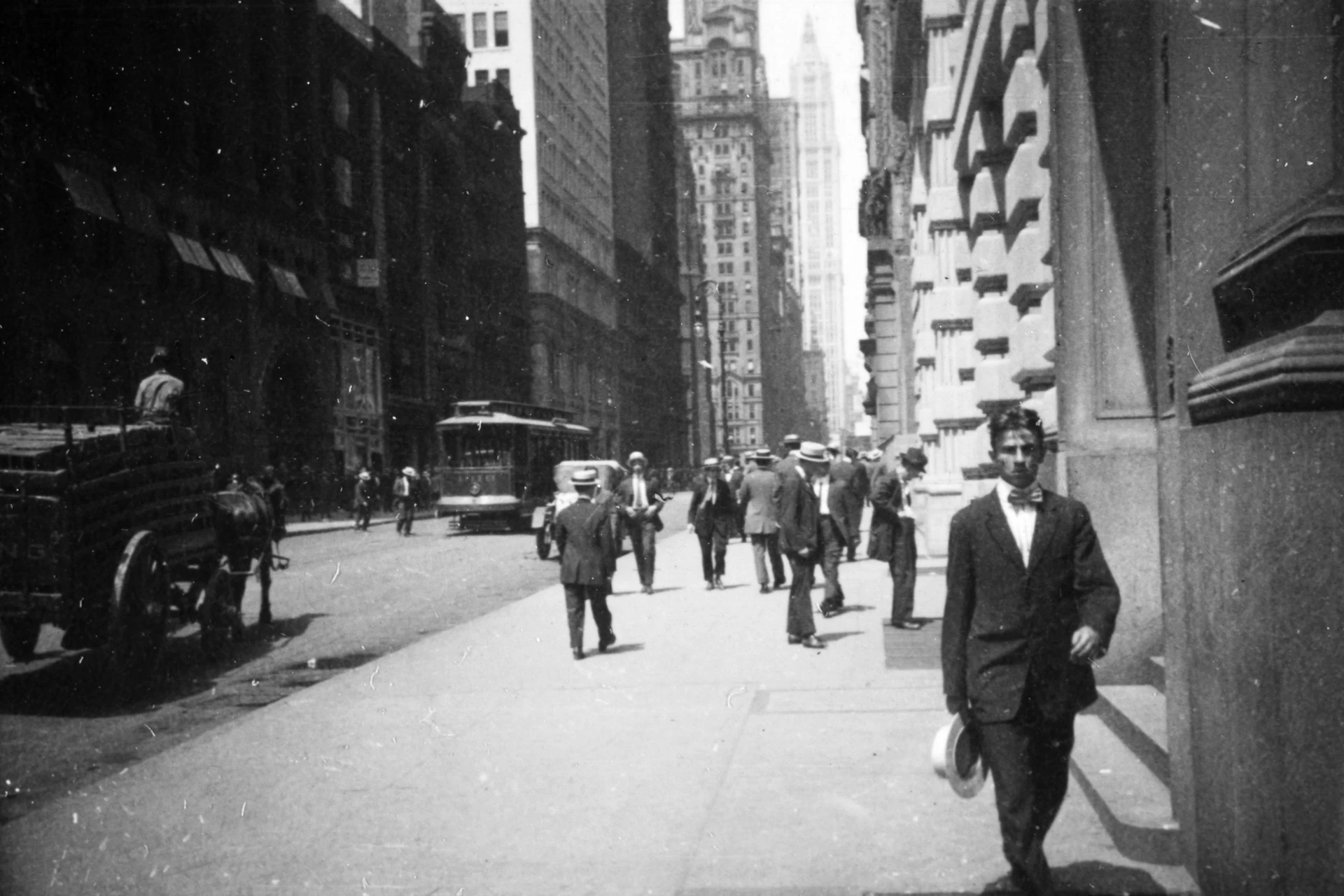The Ur-Leica
Bringing Real Life to Photography
The invention of the first practical 35 mm camera brings something to the hitherto staged and static world of photography that has never been seen before: The authentic moment. From that day on, each and every Leica has catapulted the viewer straight to the heart of the here and now.

Oskar Barnack Puts It All in Motion
The precision mechanic with the inventive spirit starts work at Leitz in 1911. As an amateur photographer with asthma, he has long struggled with the heavy cameras and static images involved in plate technology. He goes on to become the head of development for cinema and measurement technology and deals with film. Click. His life’s work suddenly culminates in an idea that will change photography forever: He rotates the vertical 35 mm cinefilm, designed for motion pictures, into landscape format. This marks the birth of the 24×36 format that will become the key to the Ur-Leica and thus the beginning of spontaneous photography on the move.
Another advantage of film plays a crucial role: With its ease of use and consistent exposure, this innovative camera can be used without specialist prior knowledge. As a result, what may well be the most important test of all takes place without Barnack, many miles away from Wetzlar.

If It Can Make It There…
Ernst Leitz II takes one of the prototypes with him by ship to New York on a business trip. A risk for the entire project, as he will be the one who will decide the fate of the Leica – short for Leitz Camera – further down the line. And Leitz is anything but a photographer. Unbeknownst to everyone in Wetzlar, however, a fascinating album of unique shots is taking shape on his trip, spanning places and styles all the way through to street photography as we know it today. His own intense experience with this trusty little camera on this journey could well be the emotional spark that ignites his decision later on.

I hereby decide: we will take the risk.– Ernst Leitz II, 1924
